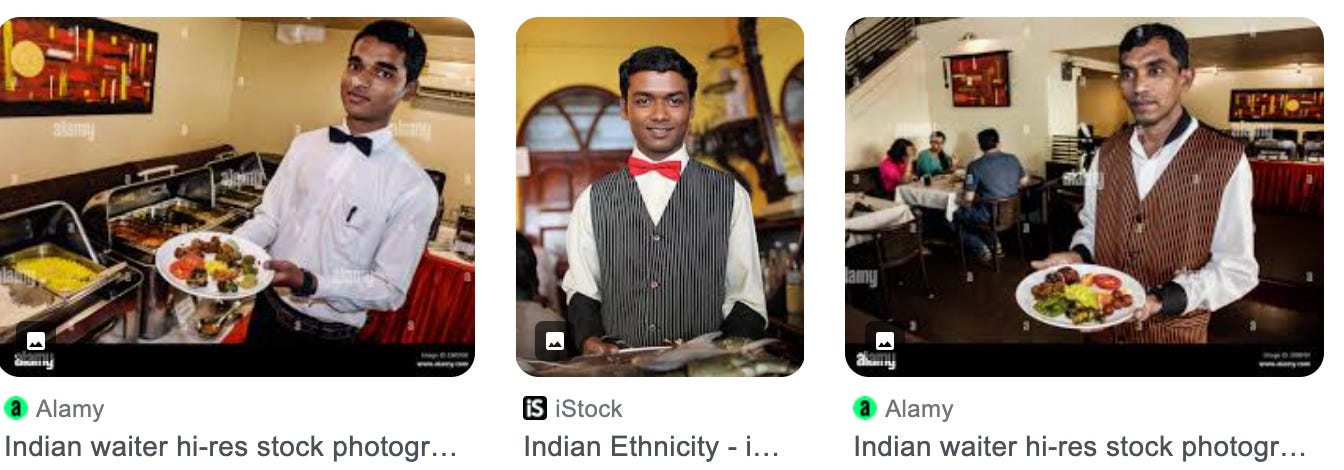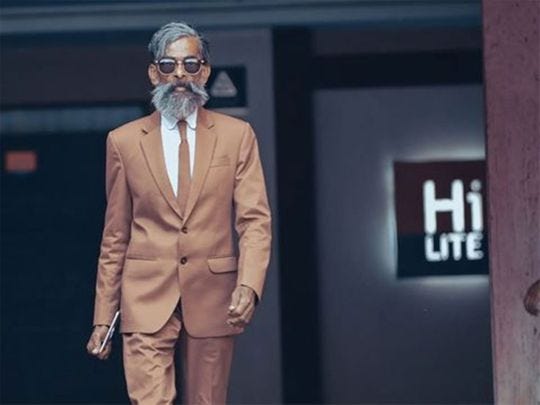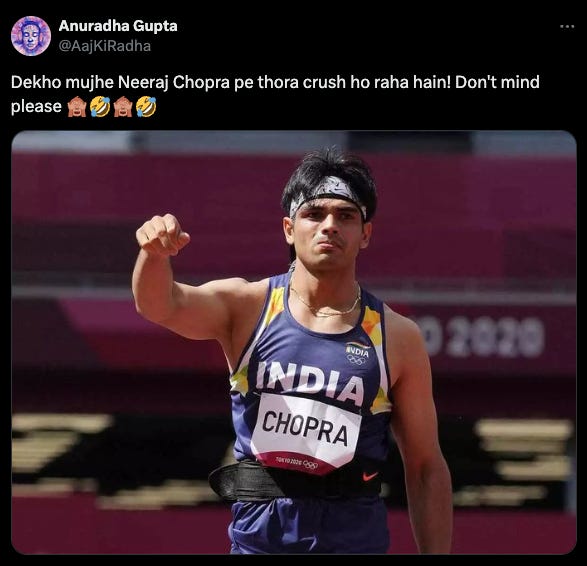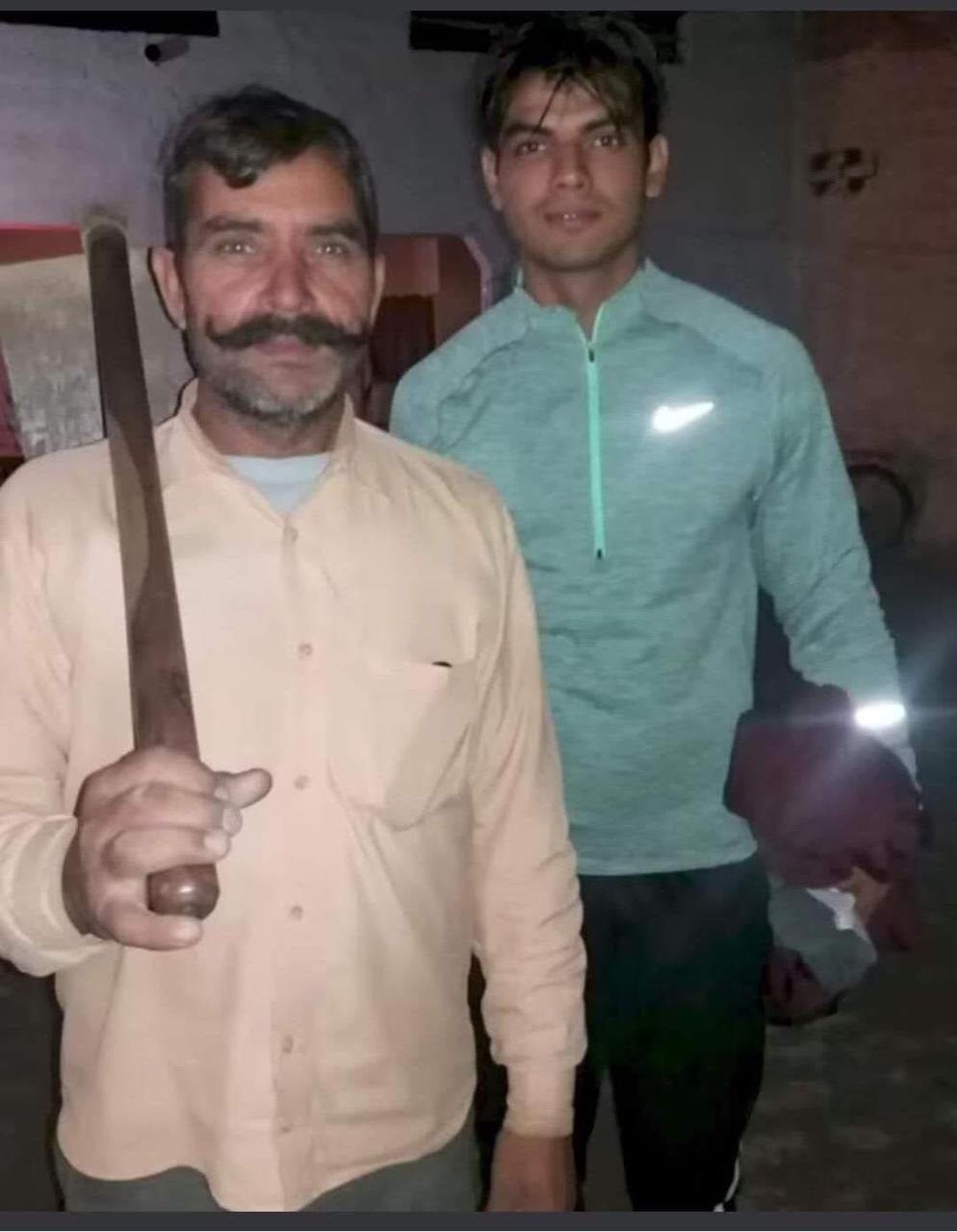Standup Comedy in India has grown by leaps and bounds in the last decade but a lacuna that had existed since long was of not having any roast show after how the controversial Roast of Ranveer Singh and Arjun Kapoor turned out to be. Comedian Ashish Solanki is trying to fill this void with his Pretty Good Roast Show that launched on Youtube recently .
It’s a well constructed show and the roast videos are actually quite hilarious . They invite 4 comedians and a main guest to the show and the 4 comedians roast each other and the guest in turns. There are a bunch of other similar roast shows on Youtube that OTT platforms sometimes organise to promote an upcoming movie or a show .
While the shows are mostly enjoyable , its not difficult to spot one common way in which the comedians mock the one being roasted - their looks . And the most common way to do that is to compare their likeness with the ‘forgettable’ faces of legions of waiters , helpers, maids or drivers - basically the providers of day to day menial services in our society . Take the following jibe from Sumaira Sheikh from this roast of actor Vijay Verma comparing him to a ‘bus conductor’ :
Or this one from the host Varun Thakur in the same show :
You would find several such instances in the roast videos that Abhishek Solanki hosts on his Youtube channel.
Wikipedia tells me the first roast show took place in New York in 1949 . Over the years I have seen several of the roast shows from Hollywood shot in last 20 years on Youtube. But I noticed I don’t recall any jokes of this sort in any of their roast programs I have watched over the years . The fact that the same joke isn’t applicable in the West has a subtle importance . It means that for the goras, there is no discernible difference between the outward physique or personality of a server in a restaurant than a suited financial advisor working at Wall Street. The fact that this joke lands so well in our country tells us that there must be a real likeness in the appearance of the ‘have-nots’ of this country compared to the ‘haves’ . The more I thought about this, it became clearer that each one of us has a broad filter in our minds to separate people with our socio-economic likeness from the other group. And not only that , each one of us consciously or subconsciously seem to use this filter during a plethora of daily interactions with each other .

The Have Nots recognise the Have Nots
Recently , I found myself dealing with this issue in a gated society of around 2500 households where I rent a flat in Bangalore. The word gated implies that the chowkidaars at the society main gate have to judge who is a resident and who is a mere maid or a helper among the people who enter the society by foot . If it is the latter , they have to do entries in a register before they are allowed to enter it. About a month back , my mother who has been a teacher of over 25 years in State Govt. schools in my home state, visited us . Frail, dark and with the simplicity of someone who was brought up in a village until marriage - she might have some of the qualities one could associate with a typical cook or a maid who enters the society daily to work in several houses like ours. Long story short , she was out with the 3 year old in the society garden somewhere when she was admonished by a society guard who mistook her for the 3 year old’s nanny. Apparently , there is a rule to not allow kids to play with balls in a certain area of a lush garden and the person thought fit to tell my mother off to go to some other area even though they had no round objects with them . Similarly , when my mother once visited the sand field where kids hang out with the nanny , another nanny asked her if ‘this woman’ (my mother) is going to replace her going forward.
The Haves recognise the Have Nots
You are on the road with your wife and kids and pass through a busy one way street in your home town . Suddenly a rag tag bike skirts the rearview mirror of your compact SUV while trying to pass from the opposite side. The rearview mirror now has a big scratch as a result of the collision . The helmet-less biker trips and falls to other side of the street as a result . He had hardly gotten up as you approach him after stopping your car . This is what this person looks like .
If you were to tell me that you won’t shout at the top of your voice at this man and hurl some select abuses at him for passing from opposite end on a one way street - you are a liar. I won’t even put it beyond many of the haves to just start hurting him physically without even uttering a word .
Now replace the rusty old bike with a compact SUV and instead of this poor fellow gathering himself after the impact , the person in the following picture gets out of his car .
If you tell me you will react the same in both situations - again you are a liar . And the person in above two pics is the same . Some harebrained photographer in Kerala picked up a daily wage worker from streets of Kozhikode few years ago, got his hair styled, his beard groomed and shot him in his new avatar to everybody’s wonder.
So its not just the facial or bodily make up but also what the dress or certain other accoutrements suggest that the opposite person is a have not. It’s true that our nanny, a Kannadiga ‘worth 12 tolas of personal gold’ , as she proudly proclaims sometimes, dresses ‘better’ than my mother . As if her skin colour or frailness was not enough, its not a surprise for me that my mom’s ‘inferior’ sense of dressing could just add to the stereotype .
Have Nots of Indian Fiction
Aravind Adiga’s 2008 Booker prize winning novel, The White Tiger, is an important work that looks at this divide from the gaze of the have nots or ‘the people from the Darkness’ as the writer calls them . The protagonist is a driver cum servant named Balram Halwai, employed in Delhi for a foreign-return son of a landlord from his village in Jharkand. The story maps how Balram observes as his ‘masters’ move around in the city in their swanky cars and live in their posh gated societies, wheeling and dealing with the city’s political class to keep control of the family’s golden goose - the coal mines . Balram ends up murdering his ‘master’ and running away to become an entrepreneur in Bangalore after assuming a different identity . Reminiscing his acts from his ‘previous life’ as a ‘servant’, he recounts how the Police poster described him as a fugitive :
“The suspect was last seen wearing blue checkered polyester shirt, orange polyester trousers, maroon color sandals…
"Maroon color" sandals—ugh. Only a policeman could have made up a detail like that. I flatly deny it. "Blue checkered polyester shirt, orange polyester trousers"…er, well, I'd like to deny those too, but unfortunately they're correct. Those are the kinds of clothes, sir, that would appeal to a servant's eye. And I was still a servant on the morning of the day this poster was made.”
Sometimes the Have Nots get to cross over
Neeraj Chopra made history when he won the first ever individual olympic gold for the country in 2021 Tokyo Olympics . His feat broke the internet and made him an overnight celebrity. So much so that you would find several tweets of ladies drooling over his looks on Twitter from that time.
A few days after that, Malishka who is an RJ for RedFM added to the same euphoria with her and several of her co-workers breaking in a dance over “Ude Jab Jab Zulfein Teri” while Neeraj blushed in the zoom call .
Neeraj comes from a farming family from a village in Haryana something his thick Hindi accent clearly signifies. Here is a pic of him with his father in their village.
It boggles me how all this played out because there is no doubt in my mind that we are surrounded by thousands of Neeraj Chopra’s each day. They might lack the athletic physique of the real Neeraj Chopra but many of them have other physical traits that can also be discussed over Twitter. They come in droves each day to our metros in search for a better remuneration for their labour, leaving their villages and small towns behind. They drive our taxis . They take our orders in the restaurants and sometimes they cook food for us . But for us Haves they remain a faceless multitude that can do their labour and vanish after taking something in return . None of us Haves have any time to reflect upon how pretty any of them look unless they win an Olympic Gold Medal.
At another point in the novel The White Tiger , as a man wanted for the murder of his employer, Balram recounts an incident on a train station as he flees from Delhi :
“That large piece of paper on the wall was a police poster—my police poster. It had already arrived here. I looked at it with a smile of pride. A smile that lasted just a second. For some bizarre reason—you'll see how sloppily things get done in India—my poster had been stapled to another poster, of two guys from Kashmir—two terrorists wanted for bombing something or the other. You'd almost think, looking at the posters, that I was a terrorist too. How annoying. I realized that I was being watched. A fellow with his hands behind his back was looking at the poster, and at me, most intently. I began to tremble. I edged away from the poster, but I was too late. The moment he saw me leaving, he ran up to me, caught my wrist, and stared at my face.
Then he said, "What's it say? That poster you're reading?"
"Read it for yourself."
"Can't."
"It's the wanted-men list for this week," I said. "Those two are terrorists. From Kashmir."
"What did they do?"
"They blew up a school. They killed eight children."
"And this fellow? The one with the mustache?"
He tapped my photo with a knuckle of his right hand.
"He's the guy who caught them."
"How did he do that?"
To create the illusion I was reading the printing on the wall, I squinted at the two posters, and moved my lips.
"This fellow was a driver. Says here he was in his car, and these two terrorist guys came up to him."
"Then?"
"Says he pretended he didn't know they were terrorists, and took them for a ride around Delhi in his car. Then he stopped the car in a dark spot, and smashed a bottle and cut their necks with it."
…. He was peering again at the photo in the poster. Suddenly he put his hand on my shoulder. "You know who this fellow in the poster looks like?"
"Who?" I asked.
He grinned. "Me."
I looked at his face, and I looked at the photo.
"It's true," I said, slapping him on the back.
I told you: it could be the face of half the men in India.”













Just the other day cycling back into my apartment tired, wet, and soiled, was wondering how security can recognise residents from non-residents. I suppose the “Haves” develop a confidence/arrogance which helps.
Very incisive observations Tarun !
Thanks for writing this and making me(&hopefully all of the "haves")
realize their privilege & introspect !